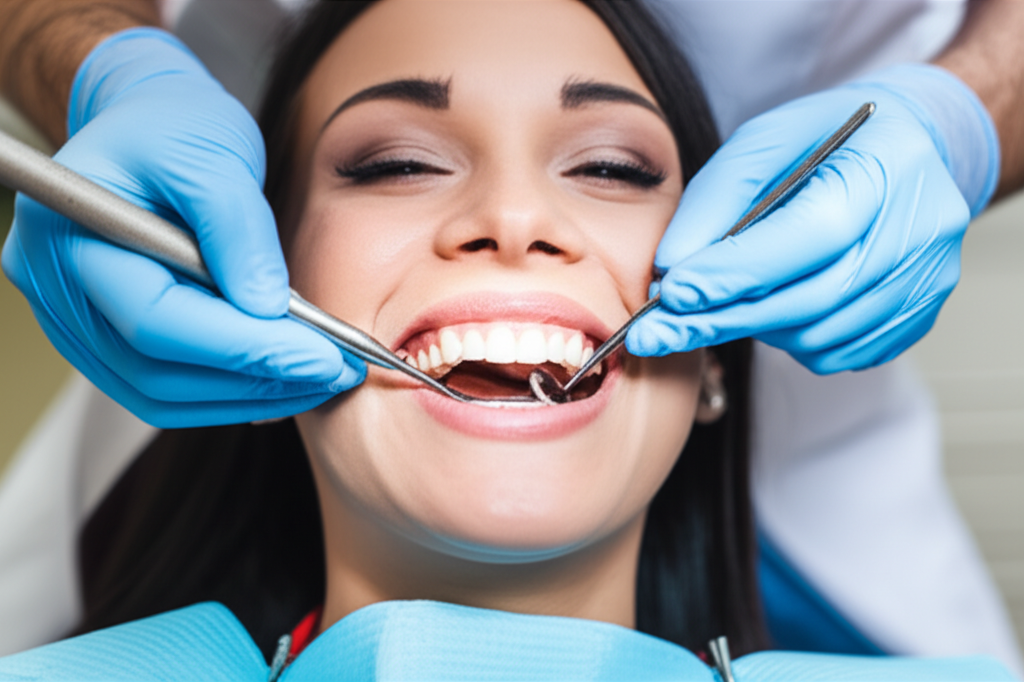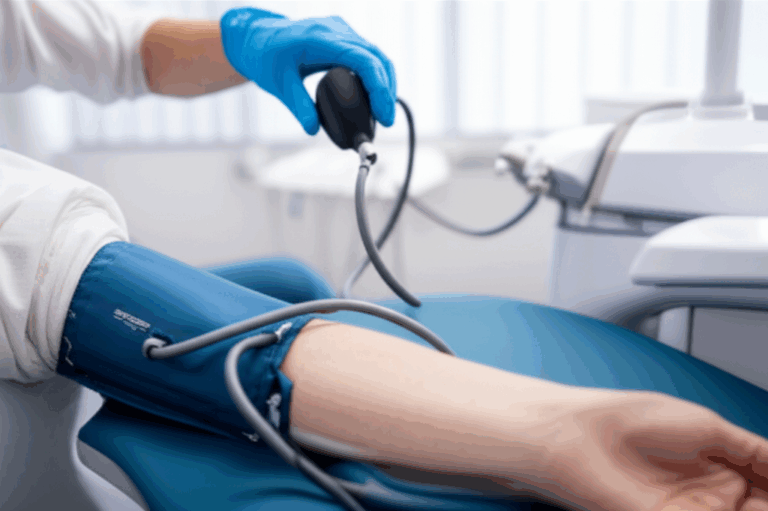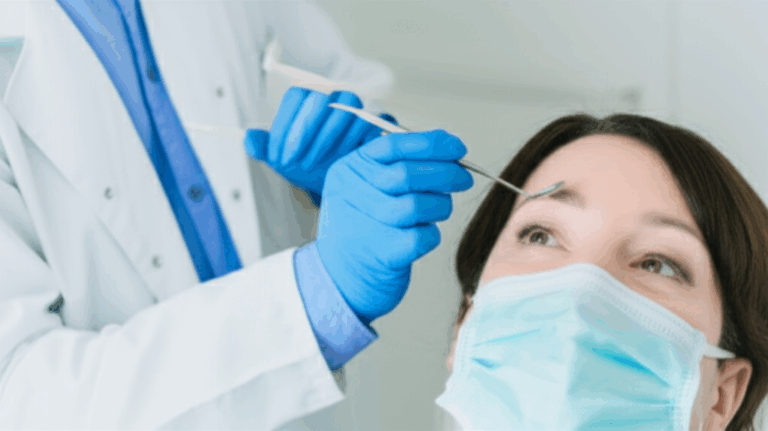
Is It Okay to Close Your Eyes at the Dentist? Your Comfort Guide
That dental light feels so bright. The tools look sharp. The chair leans back, and you wonder what you should do with your eyes. If you’ve ever asked yourself, “Are you supposed to close your eyes at the dentist?” you’re not alone. The short answer is yes. It’s totally fine to close your eyes during dental treatment. Many dentists want you to do whatever helps you stay calm and comfortable.
You don’t have to keep your eyes open. It’s not rude to close them. In fact, you might feel better. Let’s talk about why closing your eyes can help, what your dentist thinks about it, and how to make your next visit easier.
Table of Contents
Why Patients Choose to Close Their Eyes During Dental Visits
Handling Dental Anxiety and Fear
A lot of people feel nervous at the dentist. Some feel just a little stressed. Some are really afraid and stay away until they have pain. Anxiety can make your heart beat fast, your muscles get tight, and you feel like you want more control.
Closing your eyes can help. It blocks out some of what’s going on in the room. You don’t see the tools or watch what’s happening. You feel less exposed. That little bit of privacy can help you calm down.
It’s like closing your blinds when it’s too bright outside. Everything is still there, but you feel calmer and your body can relax. For a lot of people who get scared at the dentist, just closing their eyes helps a lot.
Blocking Out Bright Dental Lights
Those bright lights in the office are there so your dentist can see clearly. But they can bother your eyes. Some people start to squint, get watery eyes, or even get headaches.
Closing your eyes stops the problem right away. You won’t feel the glare. It’s normal to ask for sunglasses too—many clinics offer them. You can also ask if they can move the light out of your eyes if possible. Tell your dentist if you’re sensitive to light—they can help make you comfortable.
Less Visual Stress and Sensory Overload
There’s a lot to look at in a dentist’s office. Metal tools. The suction thing. Water spraying. Even needles. Sometimes just seeing all this makes people feel jumpy.
Closing your eyes means there’s less for your brain to process. You still hear sounds, but you’re not looking at scary stuff. This helps a lot for people who worry about seeing shots or drills. If you want, you can focus on your breathing or even picture a nice place.
Some clinics have headphones, neck pillows, relaxing music, or even things like virtual reality goggles to help you stay calm. These work even better if you close your eyes too.
Helping You Relax
When you close your eyes, your brain thinks about resting or sleeping. It’s easier to use relaxation tricks.
Try this:
- Breathe in slowly through your nose for four seconds.
- Breathe out slowly through your mouth for six seconds.
- Try to relax your jaw and shoulders.
- Let your tongue touch the roof of your mouth.
This helps your body calm down. If you like mindfulness or picturing a peaceful place, closing your eyes helps you focus. Some people think about floating on water or sitting in the sun. Little things like this really make dentist visits easier for lots of people.
Just Liking Privacy
Some people just want their own space, especially when someone’s working close to their face. You might not want to make eye contact. Closing your eyes feels like putting up a little curtain. You’re still paying attention, just having a little private space during care. In dentistry, you can decide what helps you feel best.
What Dentists Think: Is Closing Your Eyes Acceptable?
Dentists Want You to Be Comfortable
Dentists want their patients calm. A relaxed person is easier to treat. You breathe easier, hold still, and your jaw isn’t tight. That makes everything work better.
Most dental staff know people get nervous. If closing your eyes helps, your dentist will be happy you found something that works for you.
Do You Ever Need to Make Eye Contact?
Dentists sometimes give you instructions like, “Open wider,” or “Turn your head.” Sometimes eye contact helps, but usually saying it out loud works fine.
If you want, tell your dentist you plan to keep your eyes closed. They can give you a gentle tap on the shoulder if they need your attention. They’ll use short, clear words when they need you to do something.
Talk to Your Dental Team
It’s a good idea to say what you need. For example:
- “I get nervous at the dentist, so I’ll close my eyes.”
- “That light bothers my eyes. Can we use sunglasses or move it?”
- “Can I wear headphones during treatment?”
Your dentist will be glad to know. That way you both work together for a better experience.
Are There Any Downsides or Things to Think About?
Missing A Few Visual Signals (Very Minor)
With your eyes closed, you might not catch a look or a gesture from your dentist. They can use words instead. Or agree on hand signs before you start—like raising your hand to pause, or a thumbs up if you’re ok.
Worrying You Look “Uninterested” (Very Rare)
Some people think closing their eyes seems rude. Dentists usually don’t mind at all. They care more about the work and your comfort. Just talking to your team before your appointment is usually enough to clear up any worries.
Rare Safety Situations
Sometimes you need to listen carefully—like taking an x-ray or biting for a fitting. You can usually keep your eyes closed but still pay attention and follow directions. If you get super sleepy during long appointments, let your team know. For some procedures, light dozing is fine. If you’re getting sedation, your dentist will give you special instructions.
Other Comfort Tips for the Dentist
You can mix or match these tips to make dental visits easier.
Talk to Your Team
Share your worries about dentists or needles or bright lights. Say what works for you. Ask for extra breaks if needed. Telling your team your needs lets them help you best.
Use Headphones With Music or Podcasts
Dental noises can make you more nervous. Bring headphones and listen to music or a podcast you like. Ask if the office has a playlist. Guided meditation apps can work great, too.
Ask for an Eye Mask or Sunglasses
An eye mask blocks all light. Sunglasses help a lot too. Let your team know if you wear an eye mask so they can use their voice for important moments.
Practice Relaxing
Try these quick tricks:
- Breathe in and out slowly.
- Box breathing (breathe in 4, hold 4, out 4, hold 4).
- Tighten and loosen each muscle group, starting at your toes.
- Notice your breath, let thoughts come and go.
- Picture a calm place in your mind.
Closing your eyes makes these easier.
Distraction Tools
Bring a stress ball, fidget toy, or count ceiling tiles. Repeat a calming phrase or remember something happy. Some clinics have blankets, scent diffusers, or even cool screens on the ceiling. Some even use virtual reality for relaxation.
Sedation Options
For big fears, sedation can help:
- Laughing gas (nitrous oxide). Breathe it in. Helps you relax fast and fades quick.
- Pills for oral sedation. You stay awake but feel very calm.
- IV sedation for bigger procedures. Dentist will give special safety steps for this.
You’ll still get numbing shots, but sedation helps your mind feel at ease.
Book Morning Appointments
If you get anxious as the day goes on, book early. Offices can be quieter in the morning too.
Professional Help for Anxiety
If fear keeps you from the dentist:
- Consider seeing a therapist for coping tips.
- Try short visits to get used to being at the clinic.
- Some find hypnosis with a pro helpful for dental fear.
- Try a dental anxiety app with breathing guides or stories.
Dentists can help you find support—you’re not alone.
New Tech That Can Help
Modern dental clinics can sometimes make appointments much faster with things like digital scanners. Dental labs, like this one, can make crowns and other work more quickly, which cuts down your time in the chair.
Make the Room Fit You
Ask for:
- A blanket or neck pillow.
- A quieter spot.
- More or less talking, whichever helps you.
- Extra numbing if you need it.
- Short breaks to rinse or stretch.
You can make your visit fit your needs.
Who Benefits Most From Closing Their Eyes?
Almost anyone can. But it’s really good for:
- People with dental anxiety or fear.
- Anyone sensitive to bright lights.
- People bothered by lots of sights or noise.
- People who don’t want to see needles.
- Kids who like distraction.
- Adults who get migraines from bright lights.
- Anyone who just likes privacy.
People who might prefer to keep eyes open sometimes:
- Patients who feel safer watching what’s going on.
- People slowly working through fear by watching a little at a time.
- People who need to lip-read. Let your team know so they can help.
There is no right or wrong way. Do what feels best for you.
Quick Answers to Common Questions
- Is it normal to close your eyes at the dentist?
Yes. A lot of people do. Dentists expect it.
- Should I keep my eyes open during dental work?
No rule for this. Close them if you want.
- Is it rude to close your eyes?
No. It’s fine.
- Can I wear an eye mask at the dentist?
Usually yes. Ask your dentist.
- Can I wear headphones?
Most of the time, yes. Keep volume down to hear instructions.
- Can I ask for the light to be dimmed?
They can often shield your eyes or aim it away.
- Contacts and makeup: what to do?
Dental lights can dry your eyes, so bring drops if you wear contacts. Mascara may smudge after rinsing.
- Is it okay to sleep at the dentist?
Lots of patients nap during cleaning. If you tend to doze, tell your team.
- Does closing my eyes help for every treatment?
Yes, for most. Sometimes you’ll need to open your eyes for a second.
- Will closing my eyes stop pain?
It lowers anxiety, which can make pain feel less strong. Always ask for more numbing if you feel pain.
How This Helps Your Dental Health in the Long Run
Feeling comfortable gets you to your appointments. You don’t skip or cancel. That helps keep your teeth healthy.
Going to the dentist regularly catches little problems before they grow. Cleanings stop gum problems and keep your mouth healthy. Fewer emergencies, less cost, and you keep your teeth longer.
Closing your eyes is just one way to make a dentist trip easier. Use it with other tricks like talking to your team, good brushing at home, and going in often. If you know you need treatment like dental implants, crowns, or porcelain veneers, plan ahead for comfort options.
Your Options Explained for Common Dental Visits
Here’s how you can use these tips in real life:
Routine Dental Cleaning
What happens:
Scaling, polishing, flossing, maybe fluoride.
How to stay comfy:
- Close your eyes and breathe slow right away.
- Wear sunglasses or ask for less light.
- Use headphones.
- Ask for a break if you need to.
Filling a Cavity
What happens:
Numbing, drilling, filling, bite check.
How to stay comfy:
- Tell them if you worry about shots—they can numb the area to start.
- Close your eyes for numbing and drilling. Focus on breathing.
- Use hand signals for pause or rinse.
- Ask for more numbing if you still feel pain.
Root Canal or Tooth Pull
What happens:
Careful numbing, cleaning out the tooth or pulling it, aftercare.
How to stay comfy:
- Plan your comfort tricks ahead. Close your eyes, breathe, or use music.
- Ask about laughing gas if you get very anxious.
- Ask to hear steps before starting, then fewer details if that keeps you calm.
Crowns, Veneers, and Implants
What happens:
Tooth shaping, scans or molds, sometimes a temporary, implant placed for missing teeth.
How to stay comfy:
- Close your eyes and use music during scans.
- Ask if digital scanning is an option.
- Ask about sedation for longer, surgical appointments.
- Find out how many appointments you’ll need.
Most clinics can make your visit faster by working with a good dental lab, which means fewer visits and less time in the chair.
What Dentists and Clinics Do for Comfort
Good clinics do a lot for your comfort:
- Talk you through what’s coming next.
- Soothing music or quieter rooms.
- Sunglasses, headphones, or blankets.
- New tools, like digital scanners, that save chair time.
- Make sure staff know how to work with nervous patients.
Some clinics work with fast dental labs for quicker repairs and fewer appointments.
Why Closing Your Eyes Helps You Feel Better
It’s simple science—closing your eyes means less for your brain to deal with, so it’s easier to focus on feeling calm. Your heart and muscles relax, and you might even feel less pain.
It also lets you take control, even in a stressful situation. Small choices make a big difference when you’re anxious.
How to Make Your Own Comfort Plan
- Think about what makes you stressed: bright light, shots, noise, too many people close to your face.
- Pick your tricks: closing your eyes, headphones, slow breathing, sunglasses.
- Tell your team what you’ll do.
- Agree on hand signals before you start.
- Book morning visits if possible.
- After your visit, think about what helped and what to change next time.
Practice helps. Most people get less nervous over time.
Where to Find Reliable Info
If you want to read more, check these:
- American Dental Association (ADA) website for patients.
- Your local dental health websites.
- College or university dental clinics.
Studies show things like music, breathing, and closing your eyes help most people feel less stressed in the dental chair.
Good Manners and Safety Reminders
- Closing your eyes is fine at the dentist!
- Tell your dentist what you plan to do.
- If you feel pain, say so right away.
- Follow instructions after your visit for best healing.
- Brush and floss every day—your next visit will be easier.
How Closing Your Eyes Helps Treatment Go Better
When you’re relaxed, your jaw and body don’t get as tired. Dentists can work more easily. Calm breathing helps you hold still. Your body heals better when you aren’t worried all the time. When you trust your dentist, you go back regularly—and your teeth stay healthier.
Your Healthy Takeaway
- Closing your eyes at the dentist is normal and fine. It helps with anxiety and bright lights.
- Dentists want you to be comfortable—use whatever works for you.
- The only downside is you might miss a hint from your dentist, but you can use words or hand signals.
- You have lots of comfort options: sunglasses, headphones, stress balls, breathing, morning visits, and more.
- Talk to your team before your visit.
- Being comfortable means you’ll keep up with dentist visits and protect your smile for years to come.
Want a comfort plan that works just for you? Talk to your dentist before your next appointment. If you know you’ll get something big like an implant or porcelain veneers, plan extra support. Many clinics partner with fast dental labs so you spend less time in the chair.
You deserve a calm and easy dental visit. Close your eyes if it helps. Breathe. Ask for what you need. Your peace of mind and your smile both matter.







